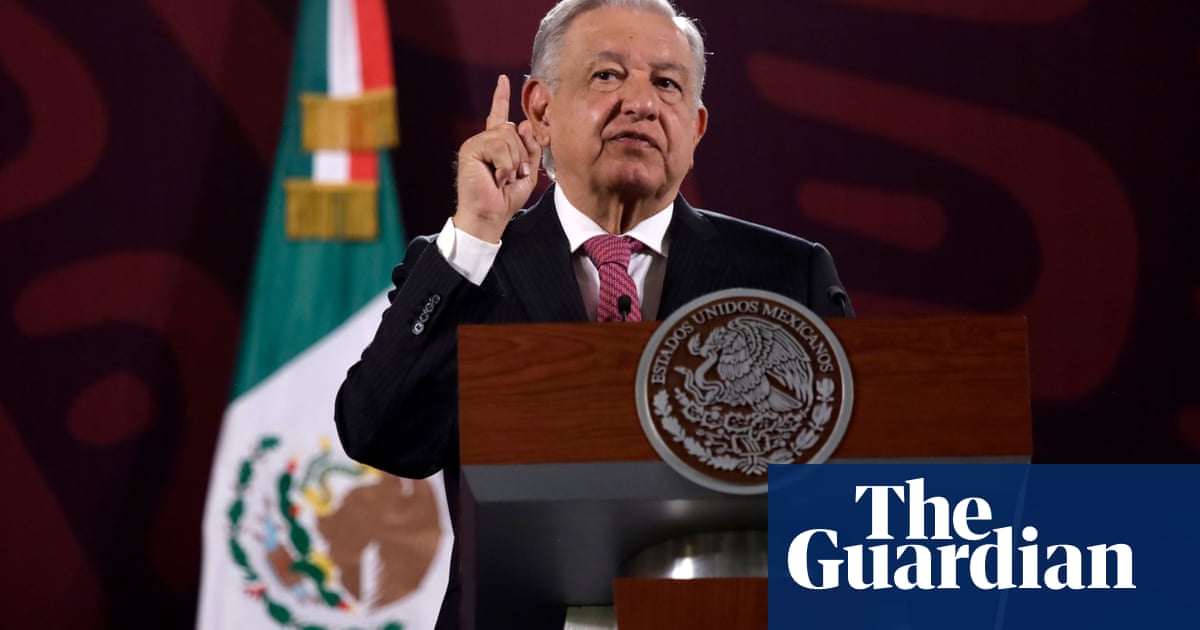
Six years ago, Andrés Manuel López Obrador broke Mexico’s traditional parties’ grip on power to become president, promising to reshape a country wracked by inequality, corruption and violence.
The self-described “Fourth Transformation” – which put López Obrador’s project on a level with the Mexican Revolution and the war of independence – has fallen short of its lofty goals. But López Obrador’s approval ratings remain rock solid, at about 65%, and his party, Morena, seems sure to retain the presidency.
The enduring popularity of López Obrador – known colloquially by his initials, Amlo – reflects the foremost success of his government: the perception of socioeconomic justice.
“First, the poor” is the campaign slogan that Morena most clearly delivered on.
A mix of minimum wage hikes, subsidies and direct cash transfers – sometimes instead of funding public services – has left many voters feeling better off.
Meanwhile, major infrastructure projects, such as the Mayan Train railway project – despite criticism for their questionable economic logic and great environmental cost – are very tangible investments to develop Mexico’s historically poorer regions.
The fact that Mexico’s very richest businesspeople, such as Carlos Slim, have made a lot of money under López Obrador has either gone unnoticed or is relatively unimportant to many Morena voters.
This reflects López Obrador’s skillful communication, perhaps best encapsulated by the sprawling daily press conferences known as the mañaneras, with which he touts his government’s achievements, flames its critics and wanders off on flights of fancy, printing the day’s headlines as he goes.
“They are like a talkshow, sustained entirely by his charisma and his ability to create sympathy among his followers and visceral rejection among his adversaries,” said Humberto Beck, a historian. “He made himself the epicentre of the Mexican news cycle.”
By putting inequality at the centre of his discourse, and weaving in symbolic recognition of marginalised groups, López Obrador “has been able to return large parts of the population to confidence in democracy”, added Beck.
This has created a committed base of supporters who for now appear willing to overlook the unfulfilled promises of his government.
Corruption and impunity are no better than when López Obrador took power. His government, like those before it, has had corruption scandals. Meanwhile, justice remains distant even for the most high-profile crimes, such as the 43 Ayotzinapa students who were forcibly disappeared.
Although the homicide rate fell slightly during the last years of López Obrador’s government, Mexico has seen more than 30,000 murders each of the last six years. Its homicide rate is still among the highest in Latin America.
Meanwhile, more than 100,000 people remain missing. In August 2023, the director of the national search commission resigned, citing pressure to reduce the ever-rising number of disappeared people, which had become politically damaging to the government.
“When it comes to security, it’s clear that López Obrador did not solve anything,” said Guadalupe Correa-Cabrera, a political scientist. “This administration has seen more homicides than the previous two. This is part of a vicious cycle, but you can’t just blame the others and not take responsibility.”
Meanwhile, despite López Obrador’s promise to return the soldiers to their barracks, the military has seen its role expand into many areas previously reserved for civil society, such as domestic security, infrastructure construction, the development of tourism and customs management.
The full implications of this are yet to play out, but the activities of the military are beyond the reach of democratic scrutiny.
“They have not calculated this well,” said Correa-Cabrera. “Administrations come to an end. Morena looks like it will get a second, but a third? Who knows. And the military has come to stay.”
This militarisation, along with López Obrador’s attacks on institutions that oppose him, has led the opposition to sound the alarm about the threat of democratic regression.
Mexico became a democracy in 2000, after 71 years of one-party rule by the Institutional Revolutionary Party – one of the parties now in the opposition coalition.
“The criticisms of the opposition are in one sense correct,” said Beck. “But then their own democratic credentials are far from impeccable. And [to Morena voters] they still represent the forces López Obrador triumphed over: a narrow, oligarchic and corrupt vision of democracy.”
Source: theguardian.com


















